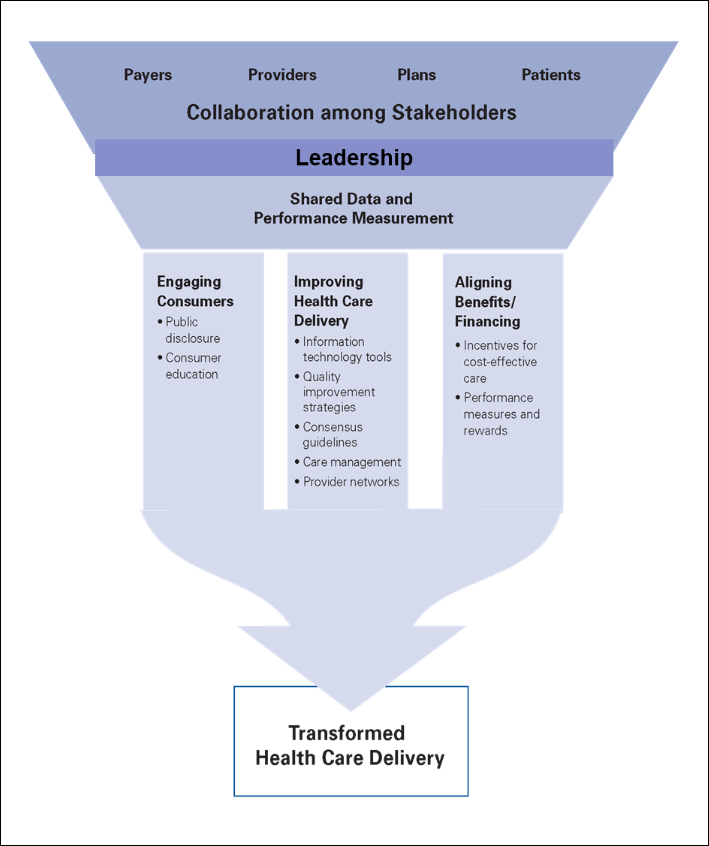It takes a region: Developing a framework to improve chronic illness care
The challenge
Escalating health care costs, care fragmentation, and low quality of care are longstanding problems in the United States, especially for the more than 100 million people with chronic illnesses. In the absence of a concerted national effort to improve the affordability and quality of health care, many communities and regions across the country are taking steps to collaboratively improve health care for local populations. Regional coalitions of multi-stakeholder groups are leading efforts for health care improvement. Providers, purchasers, plans, consumers, state, and local governments, and other stakeholders are joining forces and devising systematic ways to transform care in their region.
With funding from the California Health Care Foundation, the MacColl Center for Health Care Innovation (now the ACT Center) developed a framework for regional efforts to improve the affordability and quality of health care — particularly for chronic disease.
The work
Our team examined how community health, business, and political organizations can collaborate to create regional environments where care improvements are supported. We distilled essential strategies that drive regional collaboration by reviewing the literature and conducting interviews with leaders from 9 prominent regional improvement initiatives representing 40 organizations in 17 states.
What we learned
Four key strategies for successful regional quality improvement emerged:
- Data sharing for performance measurement: They use information technology to measure performance and increase the availability of relevant clinical information wherever patients seek care.
- Engaging consumers: They engage and educate the public to be more discriminating consumers and more informed and motivated patients.
- Improving health care delivery: They help providers improve their clinical delivery of care.
- Aligning benefits and finances: They align provider payment and patient benefits so that they support higher-quality and more efficient care.

These 4 elements are brought together in the Framework for Creating a Regional Health Care System, which combines and organizes the critical components of successful regional quality improvement efforts. When used by broad-based coalitions of stakeholders with strong leadership and a common vision, the strategies in this framework have the potential to improve health care quality and reduce costs.
Impact
Through this project, we built relationships with vanguard regional organizations across the country. This work refined our thinking on policy and financial issues facing health systems and provided a roadmap to guide other regional collaboratives as they join forces to improve care for patients.
Featured publications
It Takes a Region: Creating a Framework for Chronic Disease Care. California HealthCare Foundation, 2006.
PROJECT SNAPSHOT
FUNDER
California Health Care Foundation
PARTNERS
California Health Care Foundation
40 organizations in 17 states
KEY CONTRIBUTIONS
Evidence synthesis
Model development
PROJECT LEAD
Ed Wagner
2005-2006
Download the Framework for Creating a Regional Health Care System